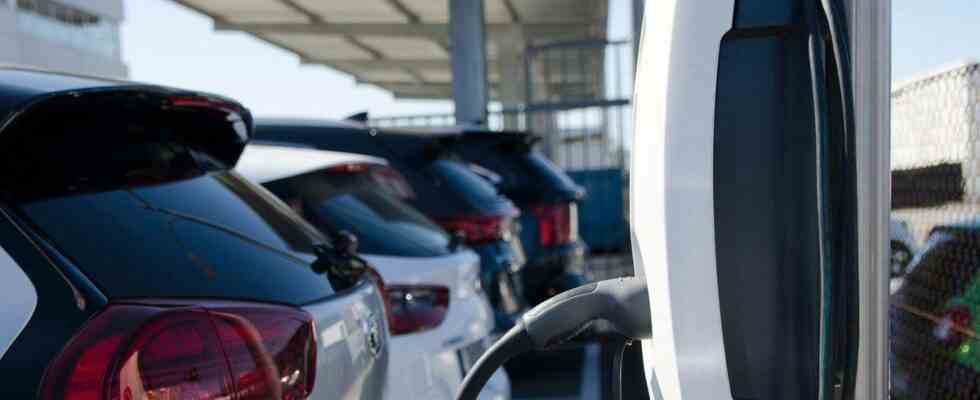At a time of energy sobriety, the recharging of electric cars is in the sights of the Electricity transmission network, TEN. While a “risk of increased tension on the electrical system but controllable” exists, the manager published, on September 14, his forecast study of the country’s consumption for next winter. Which report projects, for the next few months, electricity consumption in France at “levels similar to those of last winter and lower by approximately 1 to 2% than those of the winters preceding the health crisis”.
The objective is therefore not to exceed a consumption of between 460 and 470 TWh2. To achieve this, the manager hypothesizes an initial reduction in consumption of 2 to 3% over the coming months, or 6 to 8 TWh between October and March. And this thanks to an addition of citizen eco-gestures, by playing on the consumption of heating, lighting, multimedia and IT, among others.
And the issue of charging stations for electric vehicles is addressed. These “should not be usable between 8 a.m. and 1 p.m. and between 6 p.m. and 8 p.m.,” the report reads. An indication suggesting that the manager could intervene on the power supply of the terminals, or even cut off access to the conductors, as some Internet users believe.
FAKE OFF
Among the solutions listed by RTE to limit electricity consumption on the territory, there is indeed the fact of not recharging your car in the time slots 8 a.m. – 1 p.m. and 6 p.m. ‘electricity. “To lower these peaks, it is necessary to reduce consumption or shift usage”, explains an RTE spokesperson joined by 20 minutes. But the solutions provided by the manager remain only recommendations. “It is simply an incentive, and it is on the basis of the voluntary work of companies, communities and households”, reassures the spokesperson.
And if “the main risk situations are in the morning between 8 a.m. and 1 p.m. and in the evening between 6 p.m. and 8 p.m.”, “they never affect the weekend, very rarely in the evening beyond 8 p.m. hours, and never at night, except in exceptional circumstances”, indicates the TEN report. He continues: “they can therefore be frequently dealt with by ‘moving’ consumption or by activating emergency levers on an ad hoc basis”.
If the government notably called on the French, during the presentation of the sobriety plan on October 6, not to heat above 19°C, other tools are available. Including the Ecowatt device, which aims to encourage public authorities, businesses and households to act for energy sobriety by applying eco-gestures on a daily basis.
Created in 2020, this device presents the voltage on the electrical network in real time and for the next 3 days. TF1 and France Televisions have signed a partnership with RTE to present this “electricity weather report” and make it easily accessible to viewers. It should be noted that “in the event of a mild winter in particular, and apart from the degraded scenario – lack of effect of the sobriety plan, European gas shortage or in a context of extremely degraded nuclear production -, the probability of having to call to the red Ecowatt signal is negligible”, explains RTE.

